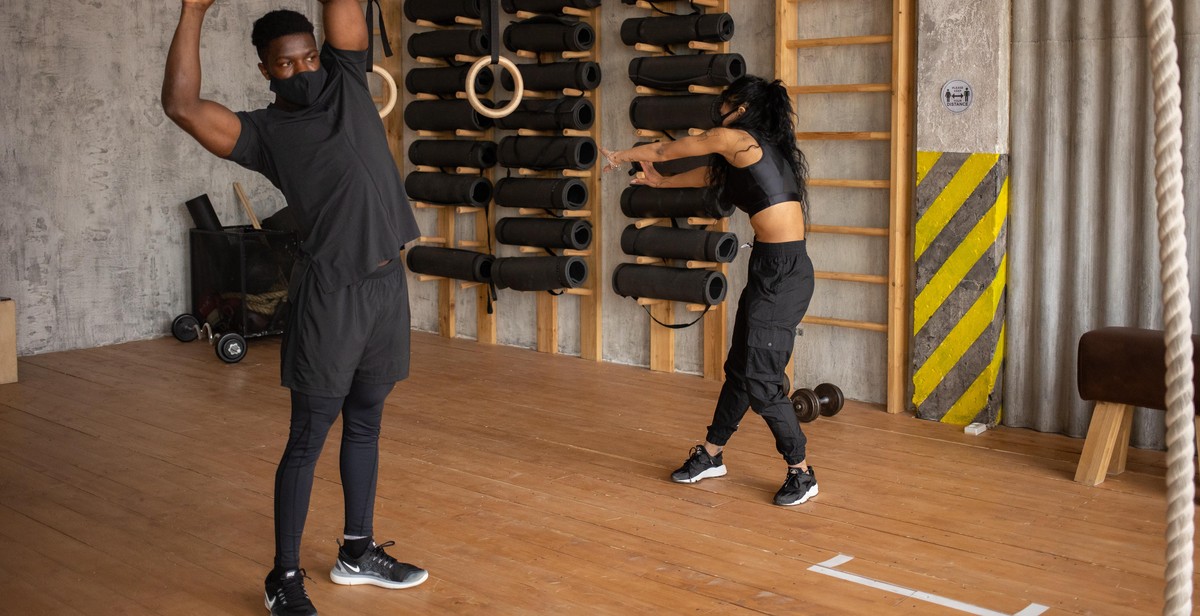Creating and Sustaining Healthy Relationship Habits
Relationships are an essential part of our lives. They can bring us joy, happiness, and a sense of fulfillment. However, relationships can also be challenging and require work. One of the keys to a successful relationship is creating and sustaining healthy habits. Healthy relationship habits are behaviors and actions that promote positivity, trust, communication, and emotional well-being.
Why Healthy Relationship Habits are Important
Healthy relationship habits are essential for building and maintaining strong, lasting relationships. They help to create a safe and supportive environment where both partners can thrive and grow together. Healthy habits also promote effective communication, which is crucial for resolving conflicts and preventing misunderstandings.
Moreover, healthy habits can improve the physical and emotional health of both partners. They can reduce stress, anxiety, and depression, and increase feelings of happiness and contentment. By creating and sustaining healthy habits, couples can strengthen their bond and build a foundation for a fulfilling and long-lasting relationship.
What are Healthy Relationship Habits?
Healthy relationship habits include open and honest communication, active listening, expressing gratitude, showing affection, spending quality time together, and supporting each other’s goals and aspirations. They also involve respecting each other’s boundaries, being accountable for one’s actions, and engaging in healthy conflict resolution.
It is essential to note that healthy relationship habits are not one-size-fits-all. Every couple is unique, and the habits they develop should reflect their values, needs, and personalities. By understanding what healthy habits are and how they contribute to a successful relationship, couples can create a strong foundation that can withstand the test of time.
Creating Healthy Relationship Habits
Creating and sustaining healthy relationship habits is crucial for maintaining a strong and lasting relationship. These habits involve a combination of communication, appreciation, respect, compromise, and quality time together. Here are some tips for building and maintaining healthy relationship habits:
Communicate Openly and Honestly
Communication is the foundation of any healthy relationship. It is important to express your thoughts, feelings, and needs openly and honestly with your partner. This includes both positive and negative feedback. When communicating, be respectful and avoid blaming or criticizing your partner. Instead, focus on finding solutions together.
Practice Active Listening
Active listening is a crucial part of effective communication. It involves paying attention to your partner’s words, feelings, and nonverbal cues. This means giving your full attention, asking questions, and clarifying what your partner is saying. It also means avoiding distractions such as phones or other devices.
Show Appreciation and Gratitude
Showing appreciation and gratitude is essential for building a strong and healthy relationship. This means acknowledging and thanking your partner for the things they do, both big and small. It also means expressing your love and affection regularly.
Respect Each Other’s Boundaries
Respecting each other’s boundaries is crucial for maintaining a healthy relationship. This means understanding and accepting your partner’s needs and limits. It also means communicating your own boundaries and respecting them when they are set.
Compromise and Negotiate
Compromise and negotiation are important skills for any healthy relationship. This means finding solutions that work for both partners by considering each other’s needs and wants. It also means being willing to make sacrifices when necessary.
Prioritize Quality Time Together
Spending quality time together is essential for building and maintaining a healthy relationship. This means making time for each other and engaging in activities that you both enjoy. It also means being present and fully engaged during your time together.
- Communicate openly and honestly
- Practice active listening
- Show appreciation and gratitude
- Respect each other’s boundaries
- Compromise and negotiate
- Prioritize quality time together
By following these tips, you can create and sustain healthy relationship habits that will strengthen your bond and help you overcome challenges together.
Sustaining Healthy Relationship Habits
Creating a healthy relationship is one thing, but sustaining it over time is a whole different ball game. It takes effort, commitment, and consistency to keep the love alive. Here are some tips for sustaining healthy relationship habits:
Consistency is Key
Consistency is essential in any relationship. It means showing up for your partner, being reliable, and keeping your promises. Consistency builds trust and helps your partner feel secure in the relationship. It also means making time for each other regularly, even when life gets busy. Whether it’s a weekly date night or a daily check-in, consistency helps keep the relationship strong.
Recognize and Address Issues Early On
Every relationship has its challenges, but the key is to recognize and address them early on. Don’t let small issues turn into big ones. Be open and honest with your partner about your feelings, and encourage them to do the same. Work together to find solutions and make compromises. Remember, communication is the foundation of a healthy relationship.
Keep the Romance Alive
It’s easy for the romance to fizzle out in a long-term relationship, but it’s important to keep it alive. Surprise your partner with small gestures of love and appreciation, like a love note or a thoughtful gift. Plan romantic dates or getaways to keep the spark alive. Physical touch and intimacy are also crucial for maintaining a strong connection.
Continue to Learn and Grow Together
A healthy relationship is one where both partners continue to learn and grow together. This means supporting each other’s goals and aspirations, trying new things together, and challenging each other to be the best versions of yourselves. Keep the lines of communication open and be willing to learn from each other. Remember, a healthy relationship is a partnership.
- Consistency is essential in any relationship.
- Recognize and address issues early on.
- Keep the romance alive.
- Continue to learn and grow together.
In conclusion, sustaining healthy relationship habits takes effort, commitment, and consistency. By following these tips, you can keep your relationship strong and thriving over time.

Challenges to Healthy Relationship Habits
Creating and sustaining healthy relationship habits can be a challenging task, as there are various external and internal factors that can affect the process. Here are some of the challenges that can hinder the development of healthy relationship habits:
External Factors
- Work stress: Work-related stress can negatively impact a person’s mood and behavior, leading to conflicts in the relationship. It is important to find ways to manage work stress and not let it spill over into the relationship.
- Financial issues: Financial problems can cause stress and tension in a relationship. It is important to have open communication and work together as a team to find solutions to financial problems.
- Family and friends: Family and friends can be a source of support or conflict in a relationship. It is important to set boundaries and communicate with each other about how to handle interactions with family and friends.
- Distance: Long-distance relationships can be challenging, as physical distance can make it difficult to maintain a strong emotional connection. It is important to find ways to stay connected and make time for each other despite the distance.
- Cultural differences: Cultural differences can create misunderstandings and conflicts in a relationship. It is important to respect each other’s cultural backgrounds and communicate openly to understand each other’s perspectives.
Internal Factors
- Insecurity: Insecurity can lead to jealousy and possessiveness, which can damage a relationship. It is important to work on building self-confidence and trust in oneself and the relationship.
- Communication issues: Communication is key in any relationship, and communication issues can lead to misunderstandings and conflict. It is important to practice active listening and express oneself clearly and respectfully.
- Unrealistic expectations: Unrealistic expectations can lead to disappointment and frustration in a relationship. It is important to have realistic expectations and communicate them with each other.
- Lack of boundaries: A lack of boundaries can lead to codependency and a loss of individual identity in a relationship. It is important to set and respect each other’s boundaries.
- Past trauma: Past trauma can affect a person’s ability to form and maintain healthy relationships. It is important to seek professional help and work through past trauma to heal and move forward in the relationship.
| External Factors | Internal Factors |
|---|---|
| Work stress | Insecurity |
| Financial issues | Communication issues |
| Family and friends | Unrealistic expectations |
| Distance | Lack of boundaries |
| Cultural differences | Past trauma |

Conclusion
Creating and sustaining healthy relationship habits is essential for a long-lasting and fulfilling partnership. It requires effort, commitment, and a willingness to communicate and compromise. By implementing the habits outlined in this article, you can improve your relationship and deepen your connection with your partner.
Remember These Key Points
- Healthy habits include communication, trust, respect, and compromise.
- It’s important to set boundaries and prioritize self-care in a relationship.
- Building a strong foundation takes time and effort, but it’s worth it in the long run.
Seek Professional Help
If you’re struggling to create or sustain healthy relationship habits, it may be beneficial to seek professional help. A therapist or counselor can provide guidance and support as you navigate the ups and downs of your relationship.
Final Thoughts
Creating and sustaining healthy relationship habits is an ongoing process. It requires active participation and a commitment to growth and self-improvement. By implementing the habits outlined in this article, you can improve your relationship and build a strong foundation for a happy and fulfilling partnership.
